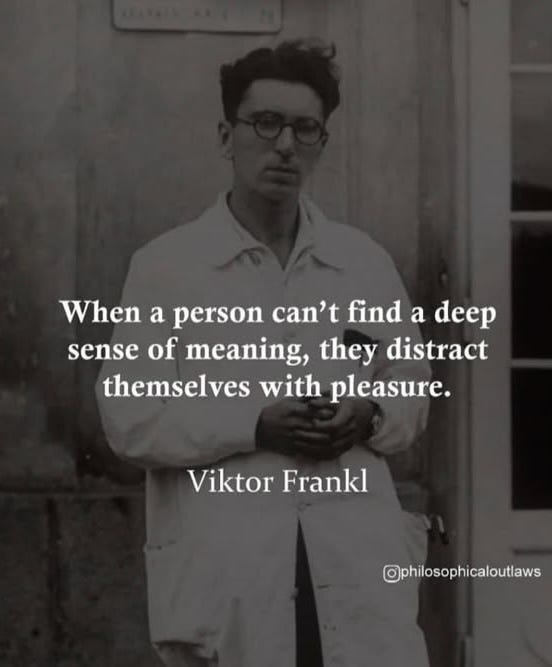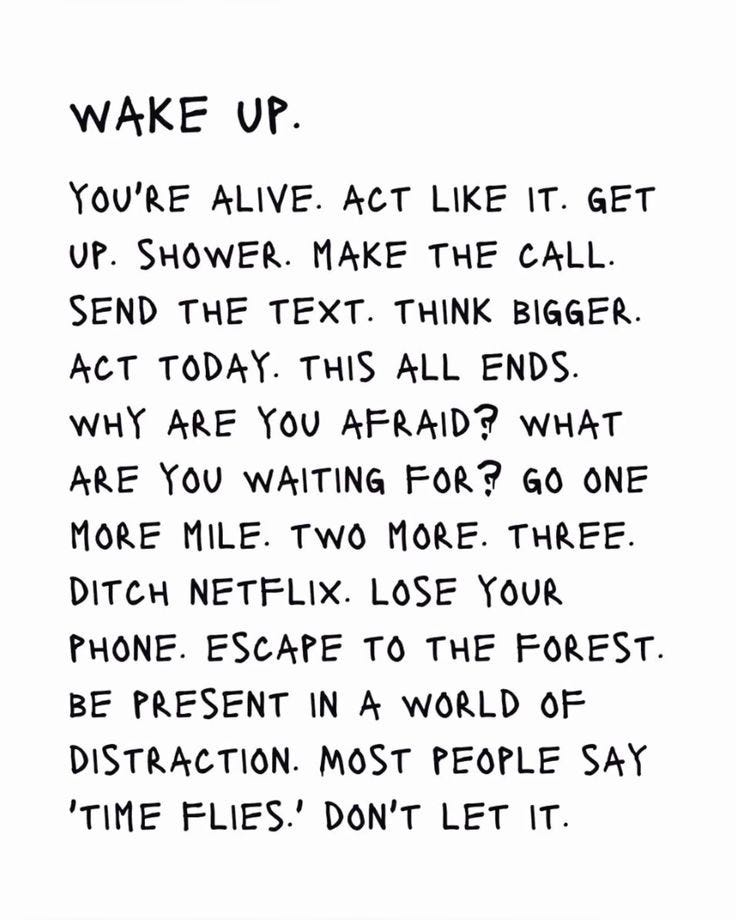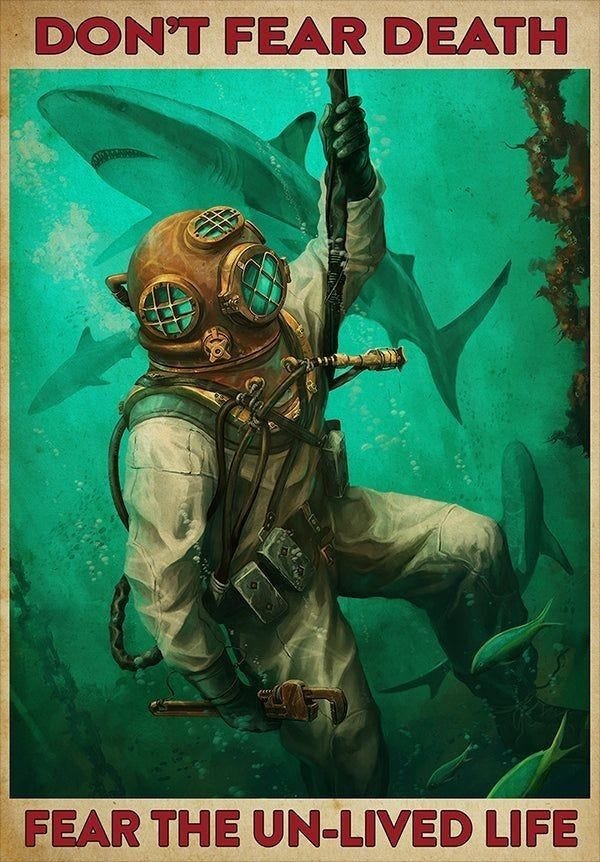Many of us are living someone else’s life, not our own.
Sometimes we have moments of clarity bringing this to our attention.
We become aware we are living a corporate life or our parent’s life. Perhaps living the life society expects but is not aligned with our own needs or values.
We are living the wrong life, and it feels off.
Seeking solace
When we are living in an unsatisfying way, we often try to distract ourselves.
The psychic pain of facing up to the horrors of existence can feel too much at times. The unachieved ambitions, the broken promises, the potential not fulfilled.
For good reason we seek solace from these negative feelings.
We see this everywhere. Some people’s lives look like nothing but distraction.
This then becomes another form of someone else’s life. A smartphone life, or an online persona where we hide behind an avatar. A life lived inside video games or escapist entertainment where we become the hero without the risk.
These compensate for what is missing, a life we love. A life we want to embrace and enjoy. A real life we can lose ourselves in.
Some escapism is not necessarily bad. The distinction is one of dependency. When we rely on artificial escape just to get through the day then something is amiss.
Living other lives
Escapism represents other people’s lives, not a life cultivated by us. It is a fiction created by writers and games designers, movie producers and behavioural experts.
The corporations behind social media apps hire the very best to make their products immersive and difficult to resist.
These can trap us, and they have trapped millions lost in a virtual world, desperate to escape the real world they actually inhabit.
Escapism allows us to flee and live another life. It is a vicarious experience. It is fake.
We can adopt this other life like a costume. And for a while it can work.
We ignore the humdrum and lose ourselves online or in games or movies. It is like a drug, a kind of safe heroin where we feel like the hero for a while.
But the humdrum we are trying to escape is our life and that life has to be lived.
Uniqueness
We must face up to life. Whatever it looks like, it is exclusively ours. A unique existence.
We may lament where we end up, what we have done with our lives, but it remains our most precious gift.
Everyone has some potential, something that can be unlocked to improve ourselves. It often doesn’t take much to do so, just a little faith.
If our life isn’t working, we can change it. We have agency even if the path is unclear.
This can be immensely difficult when we are lost in a pseudo-life constructed by someone else.
But it is the key to escaping escapism.
It is the only way to live our own authentic life.
Life is a gift
A life of regret is the horror show we are all trying to avoid. Did it matter? Did I really live, or did I just survive?
Escapism is a form of mood repair that feeds on unpleasant emotions; an avoidance strategy that acts as a short-term fix.
It solves the immediate problem of anxiety. It makes it go away, like a drug. But it stores up trouble for later because real life awaits after the comedown.
There is no easy answer, except to understand life is always present. Our life cannot be wished away. It is persistently there to be experienced, warts and all.
This piece is just an exploration of this idea. We all know life has to be lived, however hard that is to manage.
The answer is to never avoid. We can’t escape our own life. It is a gift we should embrace and we must learn to understand it in this way, as a precious thing not to be squandered.
Anecdotes from medical professionals specializing in end-of-life care who tend to the terminally ill often reinforce these ideas.
The main regret of the dying is they didn’t live their own life, but another life entirely.
They did not embrace what they really wanted. We could argue they probably did not identify or prioritize what they needed, and many distract to compensate to stave off the anxiety of knowing they are not living in alignment with who they really are.
By the end this must seem like a ridiculous waste. No one remembers the angst or the anxiety, just the lost opportunities.
When the opportunities are still in front of us then we can change course so that our lives become more in tune with what we want.
So, what is the takeaway?
Everyone has some kind of distraction. It is important not to beat ourselves up about this.
The sensible move is to use it as a personal alarm. Use it to gain insight into what we are avoiding.
Where our fears lurk is where our growth is. That stuff at the back of your mind you haven’t done that you hate to think about. The novel you haven’t written, the movie you haven’t made, the kids you haven’t produced, career ambitions, moving home, starting a small business; we all have something.
That stuff is your life, it is uniquely yours and all the more precious for it. No one else is you and no one else can bring what you bring.
The world may not understand some of those hidden things. If it did it may even scoff. But so what?
That is the stuff of life. It is the stuff of your life, and it must be embraced for you to fully live.
Embrace it all. Stare it down and get on the path away from distraction to living before time runs out.








Very well written. Young people, and by that I mean anyone under 50, or in good enough health to tackle change, need to take this advice seriously. My husband and I had a plan from the time we met to raise a large and close knit family, something neither of us had. His career never was anything more than a means to this end, and he has been very successful but was able to spend more of his time at home with us than most men supporting a family. Family first took us down some fascinating rabbit holes, some good, like homeschooling, others dead ends, like six years in the plain Mennonites, but it has been a life filled with purpose and dedication. The children now 5 adults 25-41 are all very close to us, not all to each other, but better than most.
People used to define themselves much more by their hobbies or social interests than by their jobs. I collect old magazines, some of which are the old pen pal type from the early 60’s and the wealth of intense creative hobbies both men and women put great effort into is astonishing. Easily available, mindless entertainment has stripped us of so much authenticity.
Food in my belly, clothes on my body, roof over my head: all else is luxury. And you only own what you can carry yourself.
No, really. Think about it. Literally and figuratively, poetically and philosophically.
What does the statement say? It is True, capital T-style. Not nice or comfortable or pleasant or anything, but it is True. And truth is the only thing you can build anything else upon.
There's no need to have been homeless or starving or cold to understand what a dreary and bleak existence that is, but the realisation /that/ it is bleak and dreary, and that it's /always/ a possibility, is among the surest ways of both learning to appreciate for real what you have, and to consider how to safeguard it, make it grow and make it possible to share with others whatever surplus you can and want to share.
Personally, I live by two simple principles. Simple in phrasing, not so simple in action all the time, and even more difficult emotionally (for me, I'm very vindictive by nature):
Do not cause suffering.
Increase the Good.
Nothing revolutionary there, but those two are the seed and the soil for the tree of spirit.